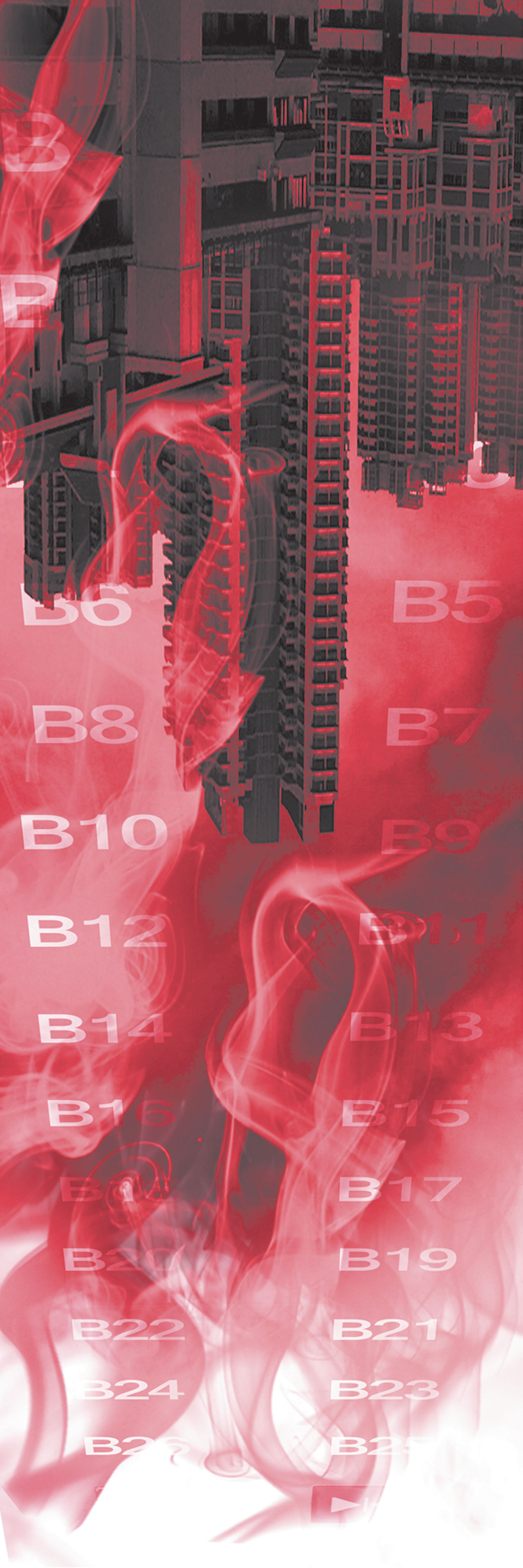GetLit! Part 3: Going Under
#BuySingLit begins today, heralding three days of more than 40 activities in all four official languages to promote Singapore literature, aka SingLit. In print and online, The New Paper is profiling some of the talent involved. Today, we have a selection of work looking beyond tomorrow...
Grace Chua
It'll start off slowly, more an idiosyncrasy than anything else. No one will notice at first, but the university floors - designed by engineers - will be numbered by altitude, so that in different spots across the rolling campus, a "2nd floor" has an underground view and a "B1" might have a view of a valley.
Gradually, those urban valleys and channels will be levelled. The new BTOs that replace the old slab blocks in each SERS redevelopment will become squatter and shorter, five aboveground storeys max, with the cheaper housing options not at the second and third floors but at the B-thirty-seventh or B-forty-ninth.
Ventilation? Not to worry: as the world gets hotter you'll still have air-conditioning, venting out into specially designed caverns, its heat captured and harnessed to purify the water in your building.
Rubbish chutes will be pneumatic. Twice a day, trash gets compacted and shunted straight to the community incinerators, no foreign labour required. The MRT spits you out directly at your doorstep - you won't even need to climb stairs.
The suburbs will be entirely self-contained: underground blocs of pleasant, low-cost housing where families can shop, work, play, live, and shop in communities run by the People's Association, who serve as their own managing agents, town councils, school boards, urban planning authorities, and overseers of religious self-help groups.
It's not inefficient; they know precisely what everyone needs.
Back in the Bras Basah city centre, as the old multi-storey carparks get conserved, restored, and converted into luxury lofts, there'll be less and less parking. You won't have a car (not with those COEs).

The buses in your neighbourhood will have been cannibalised to serve the Johor South suburb. (Back in 2018, the people of Johor unanimously decided to secede and rejoin Singapore, following a series of negotiations with the Malaysian government. Singaporeans welcomed their erstwhile neighbours with open arms.
For $300,000, an aboveground flat with a view of the Straits, and at the other end more space to locate factories out of sight.)
But at least the trains run! You've made sure of it.
You'll step out the door and glance at your smart watch: the self-driving car-hire you ordered will be here in two minutes. Which is good, because your meeting about the new port expansion is in half an hour. The car-hire market has really taken off since the great 2020 deregulation.
Above ground at Marina Bay, the air will be cool and muggy. As everything else goes under, Singapore will begin to not only de-canalise its waterways, but also re-green its neighbourhoods - a carefully planned rewilding.
Wild lallang takes root first, followed by small trees that are rapidly colonised by climbing vines. Then larger trees like angsanas and tembusus.
Office blocks and condos and hotels, regulated to be no more than three storeys above the canopy, will get a nice view of lush rainforest.
Some of it is exotics, too. The Cloud Forest and Flower Dome were just pilot projects - today, vast domes over parts of the city mean the cool swish of rhu trees at Tanjong Rhu and real lavender fields at Lavender.
This time of year, the bay is busy with parade-goers and tourists. Last year, it was a great show, even though the fuel-cell submarines had a little trouble with duckweed.
The underwater hotels were going for $700 a night on parade night - so good for the economy! The bridges groaned under the weight of picnicking spectators.
To watch the fireworks, masses of people laid out mats on the grassy plains that stretch from Marina South to Bishan. So what if only one per cent of the population can afford to live there year-round? It's literally a level playing field.
You smile to yourself; you and your colleagues have really accomplished a lot these last 15 years. And once upon a time everyone said development minister was the worst portfolio.

